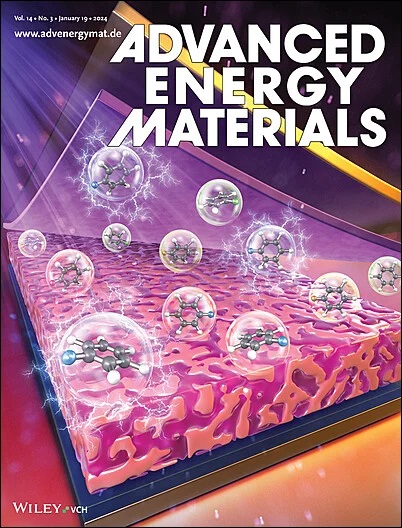Seawater‐Adaptable Electrochemical Energy Conversion and Storage for Future Smart Ocean
IF 26
1区 材料科学
Q1 CHEMISTRY, PHYSICAL
引用次数: 0
Abstract
Establishing a spatial marine energy network constitutes a pivotal pathway for realizing the smart ocean. Seawater has intrinsic advantages for use as an electrolyte in electrochemical energy conversion and storage systems due to its high conductivity. However, the complicated chemical nature of seawater imposes significant challenges in stabilizing the electrode/seawater interface. This perspective discusses recent strategies to enhance the seawater adaptability of electrode materials, with a focus on two reaction mechanisms: redox conversion and ion migration. For redox conversion, impurities like Cl面向未来智能海洋的海水适应性电化学能量转换与存储
构建空间海洋能源网络是实现智慧海洋的重要途径。由于海水的高导电性,它在电化学能量转换和存储系统中作为电解质具有固有的优势。然而,海水复杂的化学性质给电极/海水界面的稳定带来了巨大的挑战。这一观点讨论了提高电极材料海水适应性的最新策略,重点讨论了两种反应机制:氧化还原转化和离子迁移。对于氧化还原转化,Cl−、Ca2+、Mg2+、溶解氧等杂质通常会对电极产生屏蔽或中毒的负面影响。而对于离子迁移反应,海水作为高熵电解质可以为离子存储提供足够的电荷载体,并且各种离子与电极材料之间的匹配对于器件的高稳定性,容量和可逆性至关重要。全面回顾了如何实现材料的海水适应性的最新进展,此外,还强调了耦合氧化还原转换和离子迁移以构建新概念能源装置的协同潜力。将这些策略整合到实际应用中,解决现实世界的海洋条件,为构建强大、高效和可持续的海洋能源系统铺平道路。
本文章由计算机程序翻译,如有差异,请以英文原文为准。
求助全文
约1分钟内获得全文
求助全文
来源期刊

Advanced Energy Materials
CHEMISTRY, PHYSICAL-ENERGY & FUELS
CiteScore
41.90
自引率
4.00%
发文量
889
审稿时长
1.4 months
期刊介绍:
Established in 2011, Advanced Energy Materials is an international, interdisciplinary, English-language journal that focuses on materials used in energy harvesting, conversion, and storage. It is regarded as a top-quality journal alongside Advanced Materials, Advanced Functional Materials, and Small.
With a 2022 Impact Factor of 27.8, Advanced Energy Materials is considered a prime source for the best energy-related research. The journal covers a wide range of topics in energy-related research, including organic and inorganic photovoltaics, batteries and supercapacitors, fuel cells, hydrogen generation and storage, thermoelectrics, water splitting and photocatalysis, solar fuels and thermosolar power, magnetocalorics, and piezoelectronics.
The readership of Advanced Energy Materials includes materials scientists, chemists, physicists, and engineers in both academia and industry. The journal is indexed in various databases and collections, such as Advanced Technologies & Aerospace Database, FIZ Karlsruhe, INSPEC (IET), Science Citation Index Expanded, Technology Collection, and Web of Science, among others.
 求助内容:
求助内容: 应助结果提醒方式:
应助结果提醒方式:


